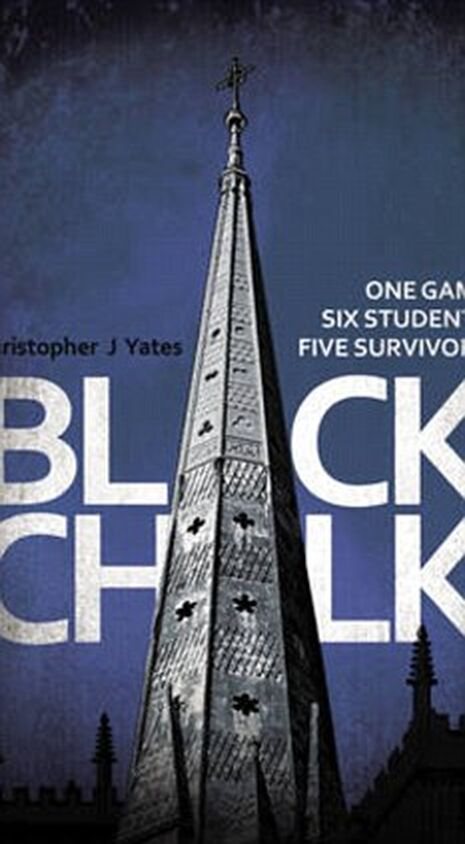Book: Black Chalk, Christopher Yates
Jilly Luke is intrigued by this Oxford-based tale of jealously, competition and ritual

Black Chalk is a thriller in every sense. Six friends gather in a college room to play an elaborate game based on the completion of escalating dares. There is money at stake, but far more important is the maintenance of the delicate balance of power between them. As an exploration of college life, the relationships between young adults and their attitudes to rules, both formal and informal, Black Chalk excels.
Yates is brutal in his dissection of the self-image of his bright young things. His protagonists badge themselves off into a group, imagining that everyone else wants to be a part of it and delighting in their exclusivity. However, as the game progresses, this emphasis on external social positioning is dropped. The walls close in, the group gets tighter, the consequences sharper and any sense of wider perspective is lost. It’s all about the game.
Scale, both in terms of physicalspace and time is hugely important in this novel. The smallness of the circles in which the six move – from the pub to the college bar to their own rooms – and a small cast of recurring supporting characters create an oppressive claustrophobia. That one of the characters, Chad, has only a year at the college adds a countdown that simmers in the background, pressing in on the action. The gradually souring friendship group is rushing towards an end. They do not realise quite how serious that end will be.
Black Chalk provides an unflinching examination of the intense and unpleasant relationships that form in such a tight friendship circle. There is a particularly brilliant passage in which the six all try to outdo one another in the underprivileged stakes; a little bit like the “Four Yorkshiremen” but so blisteringly adept because it keeps just on the right side of preposterous. It’s exactly the kind of skin-crawlingly embarrassing competition you can imagine happening late one night between new friends as they seek to work out the hierarchy of their social circle. This is just one in a series of absolutely bang
on the money observations about students and how they think. This is not an ideal picture of crass, smug Oxbridge hedonism. It’s insecure, a little awkward, and so much more realistic.
Yates has a delicate hand – his use of foreshadowing in particular is
masterful. He hints gently at what is about to happen, perhaps only a page or a few lines before it does in a way that is consistently exciting. The reader
feels as though they wander through the novel picking up clues and scent lines. Perhaps not one to read just before you meet your new flat mates...
Click here for a Q&A with the author
 News / Cambridge and Manchester Universities meet for innovation partnership26 February 2026
News / Cambridge and Manchester Universities meet for innovation partnership26 February 2026 News / Judge Business School advisor resigns over Epstein and Andrew links18 February 2026
News / Judge Business School advisor resigns over Epstein and Andrew links18 February 2026 News / Cambridge academics sign open letter criticising research funding changes22 February 2026
News / Cambridge academics sign open letter criticising research funding changes22 February 2026 News / Private school teacher who lied about Cambridge degree barred from teaching27 February 2026
News / Private school teacher who lied about Cambridge degree barred from teaching27 February 2026 Lifestyle / Finding a home away from home 26 February 2026
Lifestyle / Finding a home away from home 26 February 2026









![How to Create an Attractive Freelancer Portfolio [5 Tips & Examples]](https://www.varsity.co.uk/images/dyn/ecms/320/180/2026/02/vitaly-gariev-ho2tNOWZYXM-unsplash-scaled.jpg)